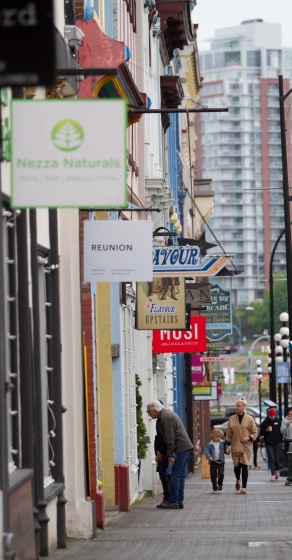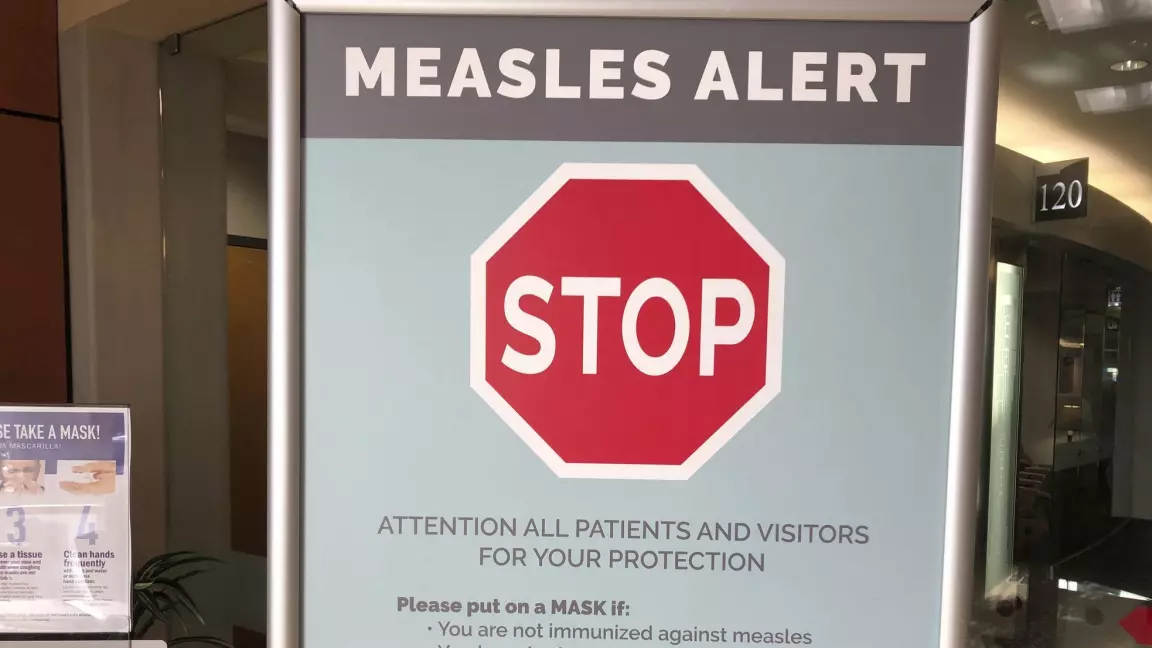Health
How B.C. health leaders will be living their lives as restrictions ease – Times Colonist

When provincial health officer Dr. Bonnie Henry had a couple of friends over for a glass of wine in the front yard of her Victoria home on Sunday afternoon, it wasn’t a typical long-weekend get-together.
“It was a bit awkward and strange and a little bit anxiety provoking not having socialized for several months,” Henry said.
Trending Stories
She washed her hands, poured the wine, placed the clean glasses on a serving tray, and set the platter down for friends sitting two metres apart.
There was also hand sanitizer on the tray — which has become the new table centrepiece during the COVID-19 pandemic.
When her two friends left, as when they arrived, there were no hugs “which we wanted to do,” said Henry, in a phone interview.
The Times Colonist spoke with three health leaders on Monday about what they are personally planning to do as businesses open and social circles broaden under Phase Two of the B.C. Restart Plan that kicks off today.
B.C. Nurses’ Union president Christine Soresen, in Kamloops, will stick to take-out and patio restaurants for now; infectious disease and critical care specialist Dr. David Forrest, in Nanaimo, is weary of any enclosed space where people aren’t wearing masks, so indoor restaurants aren’t first on list to-do list; Henry is excited to return to her favourite eatery.
Phase Two is an experiment for both businesses and patrons, Henry said. “For many, the transition brings anticipation but it also, for many, brings further apprehension and anxiety as schools and businesses look to open once again. We are still learning the new ways of social interactions and doing things we’ve never had to do before and that in itself can create anxiety and concern.”
The idea is to keep to small enough groups to deprive the virus a chance of taking off again, Henry said. “It’s not going to be back to normal, it’s going to be back to something that’s really unusual and different for us.”
Next time Henry has her friends over, she will consider setting out individually portioned snacks, she said. “It’s really about being mindful and cleaning your hands regularly.”
As for restaurants opening this week, Henry is eager: “I’m really looking forward to going to a restaurant.” Her favourites tend to be smaller venues. “Outside is clearly safer but if I’m with one other person in my bubble I’m happy to sit inside and I will be looking again to make sure there’s the right spacing.”
Restaurants are required to operate at 50% of capacity, serve parties no bigger than six people, keep different parties at least two metres apart, and record contact information of at least one guest from each party and keep it for up to 30 days for contact tracing in the event of an outbreak.
To keep fit and maintain a balance in her busy life, Henry runs and does yoga.
Henry has been asking her yoga studio to hold classes in a park. “I’d be more inclined to do outdoor yoga right now.” As for her gym, she is going to continue to take their online classes. “I think it’s going to be a bit of a mixture right now. I find it really convenient to have a session with a trainer virtually.”
If people maintain their distance, Henry believes going to a department store or clothing and shoe shops will be fine.
Forrest, the infectious disease expert, has no plans to step inside a shopping mall or a gym any time soon but he’s less concerned about going to a barber, provided there’s proper physical distancing, low numbers of people and wearing of masks.
“Any place where there’s going to be crowding in an enclosed space will be a concern to me if not everyone is wearing a mask and because it’s not mandated and because I’ve seen people less interested in wearing masks recently I’m more concerned,” said Forrest. He emphasized that masks are not a replacement for physical distancing, but are a necessary adjunct.
Particularly difficult are establishments such as restaurants where it’s not practical to constantly wear a mask, said Forrest.
With renewed confidence among Islanders stemming from the low number of reported cases, Forrest said COVID-19 “will almost certainly” be re-introduced here. Rather than venturing out to more businesses and broadening social circles, Forrest said: “I’m actually a little bit more anxious now doing things like going to the grocery store and going out because the sense I have is that people have let their guard down a bit.”
Sorensen, the nurses’ union president, said she will continue ordering take-out food, she’s curious about an outdoor patio opening up across the street from her Kamloops condominium, and she has a hair appointment booked for June 3 — but she’ll hold off visiting a department store for “a little bit.”
“We’ll be looking for places that offer take-out and outside dining,” said Sorensen, who is sharing a condominium with her mother, 76, a retired nurse, and eldest son, 25, who returned from work in London, England. because of the pandemic.
“I’d prefer not to enter into a restaurant and stay in and be seated in a restaurant, and rather sort through this next month or so of the re-openings just to see how we manage,” said Sorensen.
Priorities start with a dental appointment for a cleaning and checkup and “next on my list is absolutely going to be my hairdresser,” said Sorensen. Her hairdresser opens June 1. Sorensen has been cutting her own hair. “She’s going to help me fix up my trim.”
Sorensen said when shopping in a grocery or hardware store she’s looking for places that make hand sanitizers available, have good physical distancing, dividers or barriers at cashier stands, and safety guidelines posted.
“Right now I think smaller businesses and outdoor access is very important for me — and fresh airflow I think is a good idea. Eventually we will all have to adapt and figure out how to enter larger businesses or big box stores or shopping malls and to do so safely.”
Sorensen socializes with neighbours and friends on her front lawn keeping a physical distance. “I think that’s what we’ll continue to do until, you know, we get the go ahead from Dr. Bonnie Henry to move forward into the next phase; we’ll do this cautiously and carefully.”
Henry said as we move forward we need to take a deep breath and continue to be “cautious everywhere.”
Just as we’ve adjusted to going to grocery stores under this new normal, we’ll learn to integrate more venues and safe contacts into our daily lives, she said.
“It will be a little anxietyprovoking the first time we go to a restaurant and we’re sitting there, and it’s like OK,” said Henry.
The virus remains in the community but health officials have a good handle on where it is, Henry said. Phase 2 will bring a slight increase in cases but it should be manageable and traceable, she added. “So I’ll definitely be going to restaurants but with a small group. … We just need to take it slowly.”
Health
Quebec successfully pushes back against rise in measles cases – CBC.ca


Quebec appears to be winning its battle against the rising tide of measles after 45 cases were confirmed province-wide this year.
“We’ve had no locally transmitted measles cases since March 25, so that’s good news,” said Dr. Paul Le Guerrier, responsible for immunization for Montreal Public Health.
There are 17 patients with measles in Quebec currently, and the most recent case is somebody who was infected while abroad, he said.
But it was no small task to get to this point.
Le Guerrier said once local transmission was detected, news was spread fast among health centres to ensure proper protocols were followed — such as not letting potentially infected people sit in waiting rooms for hours on end.
Then about 90 staffers were put to work, tracking down those who were in contact with positive cases and are not properly vaccinated. They were given post-exposure prophylaxis, which prevents disease, said Le Guerrier.
From there, a vaccination campaign was launched, especially in daycares, schools and neighbourhoods with low inoculation rates. There was an effort to convince parents to get their children vaccinated.
Vaccination in schools boosted
Some schools, mostly in Montreal, had vaccination rates as low as 30 or 40 per cent.
“Vaccination was well accepted and parents responded well,” said Le Guerrier. “Some schools went from very low to as high as 85 to 90 per cent vaccination coverage.”
But it’s not only children who aren’t properly vaccinated. Le Guerrier said people need two doses after age one to be fully inoculated, and he encouraged people to check their status.
There are all kinds of reasons why people aren’t vaccinated, but it’s only about five per cent who are against immunization, he said. So far, some 10,000 people have been vaccinated against measles province-wide during this campaign, Le Guerrier said.
The next step is to continue pushing for further vaccination, but he said, small outbreaks are likely in the future as measles is spreading abroad and travellers are likely to bring it back with them.
Need to improve vaccination rate, expert says
Dr. Donald Vinh, an infectious diseases specialist from the McGill University Health Centre, said it’s not time to rest on our laurels, but this is a good indication that public health is able to take action quickly and that people are willing to listen to health recommendations.
“We are not seeing new cases or at least the new cases are not exceeding the number of cases that we can handle,” said Vinh.
“So these are all reassuring signs, but I don’t think it’s a sign that we need to become complacent.”
Vinh said there are also signs that the public is lagging in vaccine coverage and it’s important to respond to this with improved education and access. Otherwise, microbes capitalize on our weaknesses, he said.
Getting vaccination coverage up to an adequate level is necessary, Vinh said, or more small outbreaks like this will continue to happen.
“And it’s very possible that we may not be able to get one under control if we don’t react quickly enough,” he said.
Health
Pregnant women in the Black Country urged to get whooping cough vaccine – BBC.com


Pregnant women urged to get whooping cough vaccine
Pregnant women in the Black Country are being urged to get vaccinated against whooping cough after a rise in cases.
The bacterial infection of the lungs spreads very easily and can cause serious problems, especially in babies and young children.
The Black Country Integrated Care Board (ICB) is advising pregnant women between 16 and 32 weeks to contact their GP to get the vaccine so their baby has protection from birth.
The UK Health Security Agency warned earlier this year of a steady decline in uptake of the vaccine in pregnant women and children.
Symptoms of the infection, also known as “100-day cough”, are similar to a cold, with a runny nose and sore throat.
Sally Roberts, chief nursing officer for the ICB, which covers Wolverhampton, Dudley, Walsall and Sandwell, said anyone could catch it, but it was more serious for young children and babies.
“Getting vaccinated while you’re pregnant is highly effective in protecting your baby from developing whooping cough in the first few weeks of their life – ideally from 16 weeks up to 32 weeks of pregnancy,” she said.
“If for any reason you miss having the vaccine, you can still have it up until you go into labour.”
Follow BBC West Midlands on Facebook, X and Instagram. Send your story ideas to: newsonline.westmidlands@bbc.co.uk
Health
Measles cases stabilize in Montreal – CityNews Montreal


The number of measles cases has stabilized, according to the Montreal Public Health.
Since March 25, there have been no contaminations reported within the community.
“Our teams have identified all contact cases of measles,” said media relations advisor Geneviève Paradis. “It’s a laborious task: each measles case produces hundreds of contacts.”
All community transmission cases since February 2024 have been caused by returning travelers who were either unvaccinated or partially vaccinated.
Currently, there are 18 measles cases in Montreal – with 46 total in Quebec. This according to the April 18 figures from the provincial government.
“With the summer vacations approaching, if you’re travelling, it is essential to check if you are protected against measles,” explained Paradis.
According to Montreal Public Health, a person needs to have received two doses after the age of 12 months to be immunized against the virus.
They’ve launched a vaccination campaign throughout the region, and currently, 11,341 people have been vaccinated against measles in Montreal between March 19 and April 15.
Vaccination is also being provided in schools and at local service points.
“The vaccination operation is under the responsibility of the five CIUSSS of the territory,” concluded Paradis.
-



 Tech19 hours ago
Tech19 hours agoCytiva Showcases Single-Use Mixing System at INTERPHEX 2024 – BioPharm International
-
News20 hours ago
Tim Hortons says 'technical errors' falsely told people they won $55K boat in Roll Up To Win promo – CBC.ca
-



 Politics23 hours ago
Politics23 hours agoFlorida's Bob Graham dead at 87: A leader who looked beyond politics, served ordinary folks – Toronto Star
-



 Science23 hours ago
Science23 hours agoRecord breaker! Milky Way's most monstrous stellar-mass black hole is sleeping giant lurking close to Earth (Video) – Space.com
-



 Health15 hours ago
Health15 hours agoSupervised consumption sites urgently needed, says study – Sudbury.com
-



 Tech21 hours ago
Tech21 hours agoAaron Sluchinski adds Kyle Doering to lineup for next season – Sportsnet.ca
-
News13 hours ago
2024 federal budget's key takeaways: Housing and carbon rebates, students and sin taxes – CBC News
-
Tech20 hours ago
Nintendo Indie World Showcase April 2024 – Every Announcement, Game Reveal & Trailer – Nintendo Life






